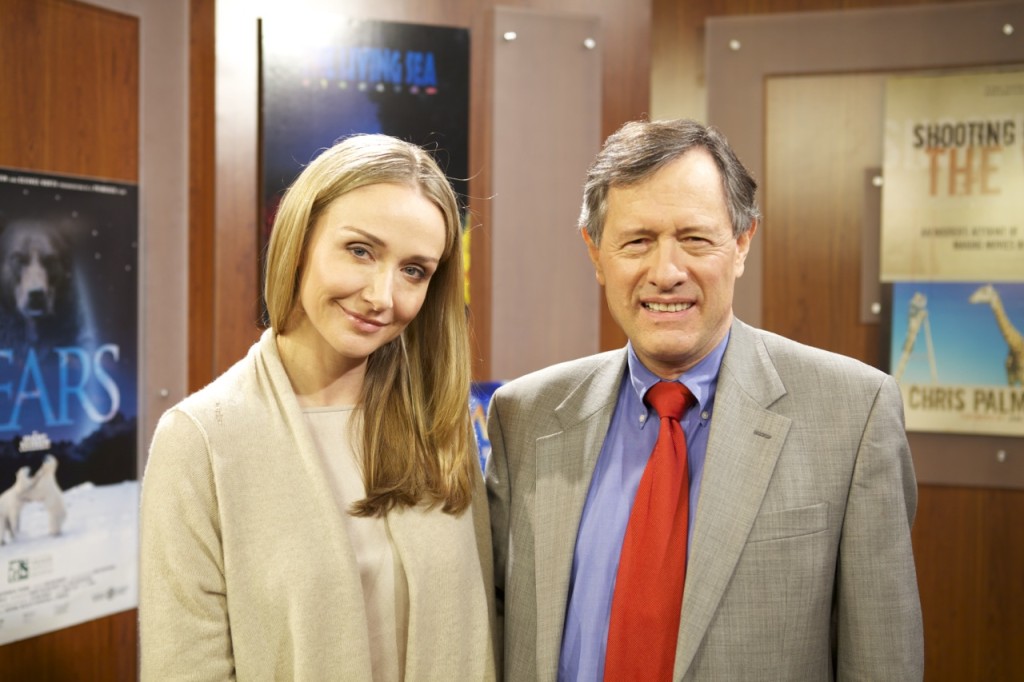#321) VIDEO: Chris Palmer is a Voice for the Future of Nature
December 12th, 2013
For nature to stand any chance of surviving humanity’s reign, the media will have to play a major role. At this point we are a media-driven species. This means the media needs the right approach to understanding wildlife — which means not making animals into clown figures, not concocting untrue scenarios (like lemmings and cliffs), and not exploiting the hell out of every piece of violent, blood-soaked scene of natural (and staged) predation. Towards this end, Chris Palmer presents the clearest, most compelling voice articulating and advocating these values in wildlife filmmaking. He’s a great guy with a great mission, and everyone interested in protecting nature should watch this new video from him, hosted by Alexandra Cousteau, based on his excellent book, Shooting in the Wild.

THE TRUTH ABOUT LEMMINGS. Among many wildlife filmmaking falsehoods Chris Palmer and Alexandra Cousteau try to set straight in their new 25 minute video, “Shooting in the Wild,” is that lemmings don’t jump off cliffs (though they may be thrown off cliffs for a Disney movie).
A VOICE IN THE COMMERCIAL WILDERNESS.
I have a few pet topics here on the Benshi that recur frequently. One of them is the importance of veteran wildlife filmmaker Chris Palmer’s work to establish a set of ethics for wildlife filmmakers. The whole idea of “ethics” seems old fashioned in today’s internet-obsessed world where there seems to be a belief that everything can just be left up to the knowledge of “the crowd” with no need for anyone to speak up. Which is misguided. And the reason why both his acclaimed book, Shooting in the Wild, and this film need to be promoted widely.
In particular, what I have consistently admired about Chris has been his work in speaking out against the exploitative practices of the Discovery Channel with their Shark Week bonanza of the past 25 years. He has written essays in the Huffington Post, and I have admired those essays in posts here and here.
And guess what he says in the video — this past year Discovery has finally shifted their tone from scare mongering about sharks to concern about their worldwide decimation. About time, dudes (just don’t get me started on all the stories I have from my USC film school classmates who have had to work on the countless crap shows Discovery and National Geographic have produced over the years in their desperate search for ratings). I have to think Chris’s voice has been a major factor pushing Discovery to develop a little bit of a conscience.
A MAN WHO KNOWS HIS JOSEPH CAMPBELL
What is very cool about the video is how it opens with basically “the flawed protagonist,” of Joseph Campbell‘s “Hero’s Journey” (which Dorie Barton adapted into her Logline Maker in our Connection Storymaker app). Instead of talking from some high and mighty position as a virtuous wildlife filmmaker who has never committed a sin, looking down on the heathens who are ruining nature with their cameras (which would be the idea of an “unflawed protagonist”), Chris begins by admitting he has taken part in the very unethical acts that he now is speaking out against.
Which is powerful and persuasive.
He tells of staging shots and misleading viewers (granted, long ago in his filmmaking career) for the sake of “telling a better story.” His transgressions back then are minor compared to the trends towards “animal porn” that eventually emerged when wildlife filmmakers began to realize how much money there was in showing sharks and lions tearing wildlife to pieces (not to mention footage of monkey sex and every other imaginable animal orgy– btw, a friend JUST told me about being contacted by a researcher from one of those channels seeking footage on “rape” in any species of animal — how lovely).
Chris is now a professor at American University sharing his years of knowledge with students and producing superstars like recent graduate Jackie Yeary who ended up being part of our social media team last summer for the release of our book, Connection.
So if you want to listen to voices that are truly standing up for the proper and ethical approach to nature, you have to read his book, follow his blog, and also follow the great work of a younger voice from South Africa (now residing in NYC), Adam Welz, who takes on the same issues on his excellent and popular blog, Nature Up for the Guardian (he has a great piece this week on how some US environmental websites have become infested with cutesy cat and dog stories — and in a similar “flawed protagonist” move he opens with a photo of his own cat — hey, we’re all human!).